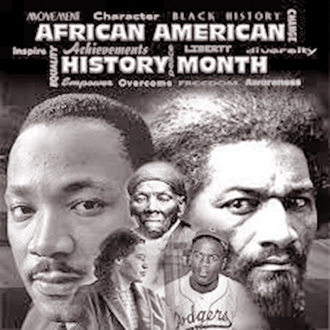
One day our descendants will think it incredible that we paid so much attention to things like the amount of melanin in our skin or the shape of our eyes or our gender instead of the unique identities of each of us as complex human beings
—Franklin Thomas, activist, philanthropist and former president of the Ford Foundation
“Freedom” has been a shared, singular dream of people of colour ever since the first abducted Africans found themselves enslaved on the shores of America. They demanded freedom from bondage and the atrocities of rape, beatings and family separations. Freedom from segregation, police brutality and discrimination. Passed down through generations of African Americans, this dream of freedom is one which is still strived for, yet greatly denied to them. Today, African Americans still walk the streets and use their voices to demand freedom from all the effects of racial hatred, which have long distorted the democratic ideals that are expected to be the pillars of the United States of America.
 The “African American History Month” commonly referred to as, “Black History Month” is celebrated in the United States from February 1 to March 1, each year.
The “African American History Month” commonly referred to as, “Black History Month” is celebrated in the United States from February 1 to March 1, each year.
This is an annual recognition and celebration of the African American community, their achievements and the central role they have played, and continue to play in American society, as a whole.
This celebration evolved from the original “Negro History Week”, the brainchild of the Harvard-educated, American historian, author and journalist, Carter G. Woodson and other prominent and leading African Americans.
The origin story of the Black History Month dates back to the year 1915, half a century after the revered President Abraham Lincoln abolished slavery in the United States by signing the 13th Amendment of the US Constitution.
In 1915, historian Carter G. Woodson and the prominent minister Jesse E. Moorland, founded the Association for the Study of Negro Life and History (ASNLH). This organisation, known today as the Association for the Study of African American Life and History (ASALH), was dedicated to the recognition and promotion of the achievements by African Americans and other people of African descent.
The month of February plays a significant role in this event due to the fact that when ASNLH sponsored the very first Negro History Week in 1926, they chose the second week of February in order for the celebration to coincide with the birthdays of the Great Emancipator, President Abraham Lincoln and the brave escaped slave who became a prominent activist, author, public speaker and a leader in the abolitionist movement, Frederick Douglass also known as the Lion of Anacostia.
 This event inspired local celebration and establishment of history clubs in many schools and communities nationwide, developing the awareness and appreciation of African American History and the importance of the African American society within the nation.
This event inspired local celebration and establishment of history clubs in many schools and communities nationwide, developing the awareness and appreciation of African American History and the importance of the African American society within the nation.
The Negro History Week evolved into the currently celebrated African American History Month in the latter part of the 1960s, due to the heading of celebration of this event by many mayors of cities around the country. Black History Month was later officially recognised by the 38th President of the United States, Gerald Ford, in the year 1976.
This laid the foundation, not only for the annual tradition of honoring the great African American individuals of the past and the present, but also the honoring of the African diaspora in many other countries such as Canada and the United Kingdom, who have contributed and continue to contribute to the enriching of history, of not only the United States but many other nations as well.
Although the recognition and appreciation of uniqueness and potential of the African American society, seemed to increase within the United States throughout the past decades, the ruthless murders of Breonna Taylor in March 2020 andGeorge Floyd in May 2020 are deeply unfortunate, yet clear examples of the prevalent and detrimental police brutality and racial injustice within the nation.
The brutal shooting of the young Ahmaud Arbery by racist white supremacists, ironically during the Black History Month of 2020 has also opened the eyes of Americans and people all over the world to the daunting fact that we are still far away from achieving the goal of appreciating the African American community and African Diaspora and establishing peace and harmony among races and nations.
Since 1976, it has been customary for the President of the United States to designate February as Black History Month and endorse a certain theme. Keeping with the tradition, 2021’s Black History Month will be celebrated under the theme, “Black Family: Representation, Identity and Diversity” shedding light on and explaining the African Diaspora and the spread of Black families across the United States.
Among the chaos that people all over the world are currently facing and undergoing, this year’s African American History month, that is being celebrated on the aforementioned theme, brings about the hope that racial justice is developed and instilled within the societies and nations around the world with the true recognition and celebration of the past and present powerful contribution of the African American community and other people of African descent, to history.
